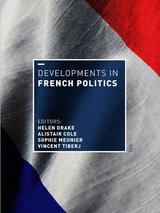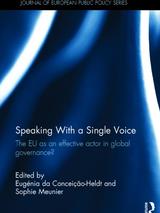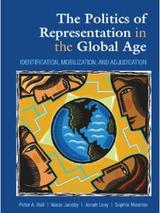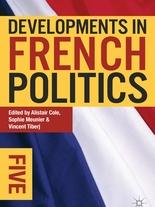Working Papers
Abstract
The overwhelming American economic and military power over the past six decades had a major impact on global attitudes towards the United States. Power breeds admiration as well as resentment, and seemingly unchecked, unilateral American power partly fueled the phenomenon known as anti-Americanism in the first decade of the millennium. The financial crisis of 2008, however, acted as a revelator of the relative decline of American power, at least in the economic sphere, leading to the popularization of the concept of a “post-American world”. If the power of the US impacted its international image negatively, should we expect the decline of this power to impact its image positively? This paper investigates whether the “post-American world” will also be a “post-anti-American world”. Using data from the Pew Global Attitudes Project, we explore three hypotheses on how the relative decline of American power can affect global attitudes towards the US and ask whether anti-Americanism has the potential for being replaced by anti-China sentiments. We find, instead, that opinions about the US and China are often correlated and appear to be linked to other sets of attitudes, including ant-globalization sentiments and xenophobia. Moreover, we find that some of the factors that contributed to anti-Americanism can still exist in a “post-American world”.
Forthcoming
2021
Abstract
decade, advanced economies worldwide have tightened their national investment screening
mechanisms (ISMs) for foreign direct investment (FDI). In March 2019, the European Union
(EU) adopted its first common FDI screening framework. Based on extensive interviews with
high-level EU and country officials involved in the negotiation process, and using a unique
measure of national support for the EU-wide ISM created through the first-ever elite survey on
this subject matter, we find that countries with higher technological levels were more supportive
of FDI screening due to concerns over unreciprocated technological transfer. We also find
sector-dependent effects of Chinese FDI on country-level support for FDI screening: Countries
with high levels of Chinese FDI in strategic sectors are more likely to support the EU ISM, while
those with high levels of Chinese investment in low-tech sectors tend to oppose screening. Our
overall findings suggest that EU investment screening, and national-level screening in general,
might become more restrictive in the future, especially in light of the COVID-19 pandemic.
2020

Abstract
Abstract
Abstract
2019
Abstract
2018
Abstract
2017
Abstract
Perceptions of the United States in European public opinion greatly improved around 2008, while perceptions of China simultaneously deteriorated. The Transatlantic and Sino-European relationships stem from radically different historical contexts. Yet could the image of China and the image of the U.S. be related in the eyes of Europeans? This paper examines whether attitudes towards China have contributed to determining attitudes towards the U.S. in Europe by analyzing data from the Transatlantic Trends survey taken in 2010, a critical juncture in Europe’s relations with both the U.S. and China. We investigate three hypotheses about this relation: the “yin and yank” or negative correlation (the more Europeans fear China, the more positive they become about the U.S.; the more favorably Europeans view China, the more negatively they see the U.S.); the “open vs. closed” or positive correlation (the more favorably Europeans see China, the more favorably they see the U.S.; the more negatively they see China, the more negatively they see the U.S.); and no relation (European attitudes towards China and the U.S. are independent). To the question of whether anti-Chinese sentiment has the potential for replacing anti-Americanism in Europe, our main conclusion is that positively correlated attitudes towards the U.S. and China reveal a deep cleavage in Europe between those who are “in” and those who are “out” of globalization.
2015

Abstract
Under what conditions does the internal cohesiveness of the European Union determine its external effectiveness on the world stage? This book asks this question, investigating the frequent political assumption that the more cohesive the EU presents itself to the world, the more effective it is in achieving its goals. Contributions to this book explore this theory from a range of perspectives, from trade to foreign policy, and highlight complex patterns between internal cohesiveness and external effectiveness. These are simplified into three possible configurations: internal cohesiveness has a positive impact on external effectiveness; internal cohesiveness has no impact on external effectiveness; and internal cohesiveness has a negative impact on external effectiveness. The international context in which the EU operates, which includes the bargaining configuration and the policy arena, functions as an intervening variable that helps us to explain variation in these causal links. The book also launches a research agenda aimed at explaining these patterns more systematically and determining the marginal impact of cohesiveness on effectiveness. This book was originally published as a special issue of the Journal of European Public Policy.
2014

2013

